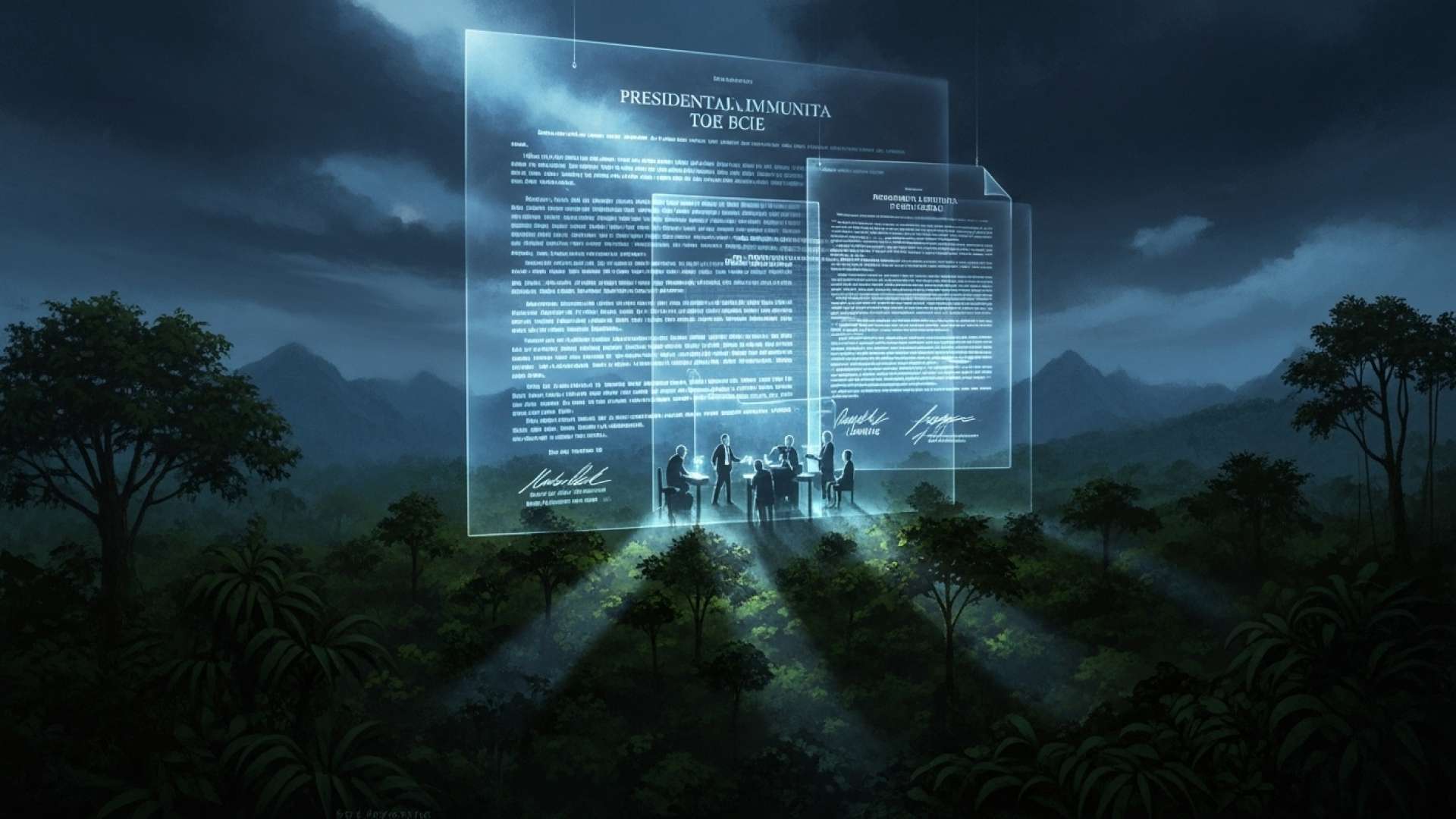San José, Costa Rica — San José, Costa Rica – President Rodrigo Chaves will not face trial regarding the BCIE (Central American Bank for Economic Integration) case during his current presidential term. The Asamblea Legislativa (Legislative Assembly) has declined to lift his immunity, effectively halting legal proceedings until he leaves office.
This decision means the accusations against President Chaves will be put on hold until May 8, 2026, when his presidential term concludes. The case revolves around allegations that Chaves influenced businessman Christian Bulgarelli to financially benefit former campaign advisor Federico Cruz (known as “Choreco”) through a contract funded by BCIE resources.
To gain deeper insights into the complexities of presidential immunity, TicosLand.com reached out to Lic. Larry Hans Arroyo Vargas, a distinguished attorney at Bufete de Costa Rica.
Presidential immunity is a complex legal doctrine that varies significantly across jurisdictions. While it often shields a head of state from civil and criminal prosecution while in office, it is not absolute and typically does not extend to actions taken prior to assuming the presidency or after leaving it. Moreover, the scope of immunity can be subject to judicial interpretation and may be waived under certain circumstances. In Costa Rica, for example, the Constitution outlines specific limitations on presidential immunity, particularly regarding actions unrelated to official duties.
Lic. Larry Hans Arroyo Vargas, Attorney at Law, Bufete de Costa Rica
Cargando...
Lic. Arroyo Vargas’ explanation underscores the crucial point that presidential immunity, even where it exists, is not a blanket protection against accountability. The specific limitations enshrined in Costa Rican law highlight the balance our nation seeks to strike between protecting the office of the president and ensuring that no one is above the law. We thank Lic. Larry Hans Arroyo Vargas for offering his valuable legal expertise on this important topic.
Legal expert Esteban Valverde clarified the situation, explaining that the Legislative Assembly is obligated to inform the Supreme Court of Justice that there are no grounds for initiating proceedings. The case file will then be returned to the Prosecutor General’s Office, effectively suspending the case temporarily.
The so-called ‘immunity’ does not mean impunity: during the time it remains in effect, the statute of limitations on criminal proceedings is frozen. This means that, starting May 8, 2026, the Prosecutor’s Office will have the maximum term provided for the alleged crime (eight years in this case) to bring the case before the ordinary courts, and without the intervention of the Attorney General but rather a common prosecutor, possibly from the Adjunct Prosecutor’s Office for Probity, Transparency, and Anti-Corruption.
Esteban Valverde, Lawyer
This delay does not equate to exoneration. Valverde emphasized the critical distinction between immunity and impunity, highlighting that the statute of limitations on the criminal action is effectively paused while Chaves holds presidential immunity. Once his term ends, the prosecution will have the full eight years allowed for this type of alleged offense to pursue the case through standard legal channels.
An interesting legal wrinkle adds further complexity to the situation. If Chaves were to be appointed as a government minister in the next administration, his immunity, often referred to as “fuero” in Costa Rican legal parlance, would be extended for the duration of his ministerial tenure.
The Prosecutor’s Office alleges that Chaves pressured Bulgarelli to provide financial benefits to Cruz through a contract using BCIE funds. This accusation forms the core of the case and will be central to any future legal proceedings.
The decision to not lift Chaves’s immunity has generated intense political debate within Costa Rica, sparking discussions about the balance of power and the application of legal processes for high-ranking officials. The future of the BCIE case remains uncertain, contingent on the actions of the Prosecutor’s Office after President Chaves leaves office in 2026.
For further information, visit the nearest office of Fiscalía General
About Fiscalía General:
The Fiscalía General de la República de Costa Rica (Prosecutor General’s Office of Costa Rica) is an independent institution responsible for investigating crimes, representing the public interest in criminal proceedings, and ensuring that justice is served. It operates independently of the executive branch to maintain impartiality in the legal system.
For further information, visit the nearest office of Asamblea Legislativa
About Asamblea Legislativa:
The Asamblea Legislativa (Legislative Assembly) of Costa Rica is the country’s unicameral national legislature. It is responsible for enacting laws, approving the national budget, and overseeing the actions of the executive branch. The Assembly consists of 57 deputies elected by proportional representation.
For further information, visit the nearest office of Corte Suprema de Justicia
About Corte Suprema de Justicia:
The Corte Suprema de Justicia (Supreme Court of Justice) is the highest court in Costa Rica. It heads the judicial branch of government and is responsible for interpreting the Constitution and upholding the rule of law. The Court also has administrative responsibilities for the judicial system as a whole.
For further information, visit the nearest office of BCIE
About BCIE:
The Central American Bank for Economic Integration (BCIE, Banco Centroamericano de Integración Económica) is a regional development bank established in 1960. It aims to promote economic integration and social development in Central American countries. BCIE provides financing for infrastructure projects, social programs, and private sector initiatives in the region.
For further information, visit bufetedecostarica.com
About Bufete de Costa Rica:
Bufete de Costa Rica is a pillar of legal excellence, built on a foundation of unwavering ethical practice and a deep commitment to social progress. The firm’s innovative approach to legal solutions, coupled with a proactive dedication to sharing legal knowledge with the community, empowers individuals and organizations alike. Through their work, Bufete de Costa Rica strives to create a more just and equitable society, one informed decision at a time.









